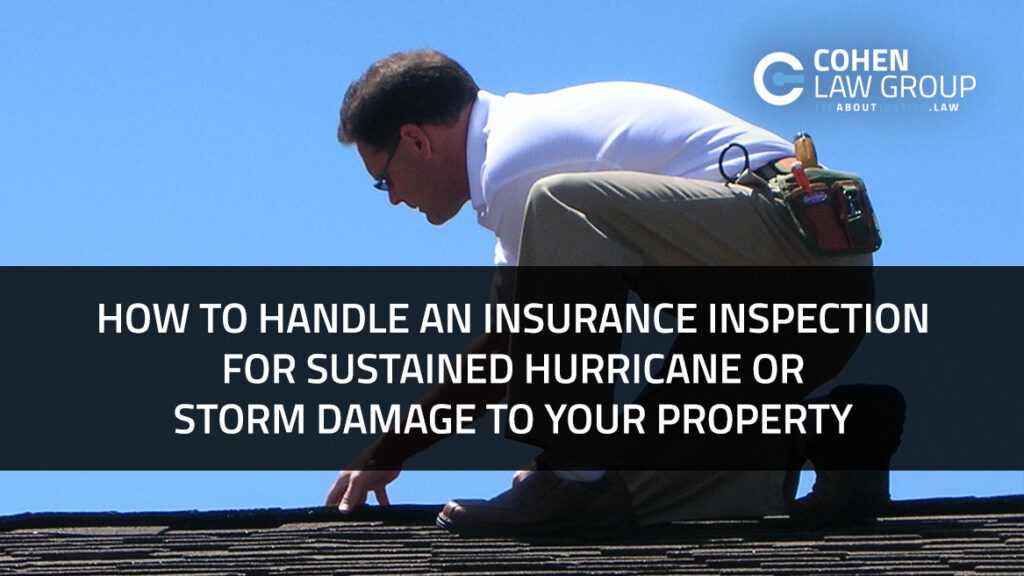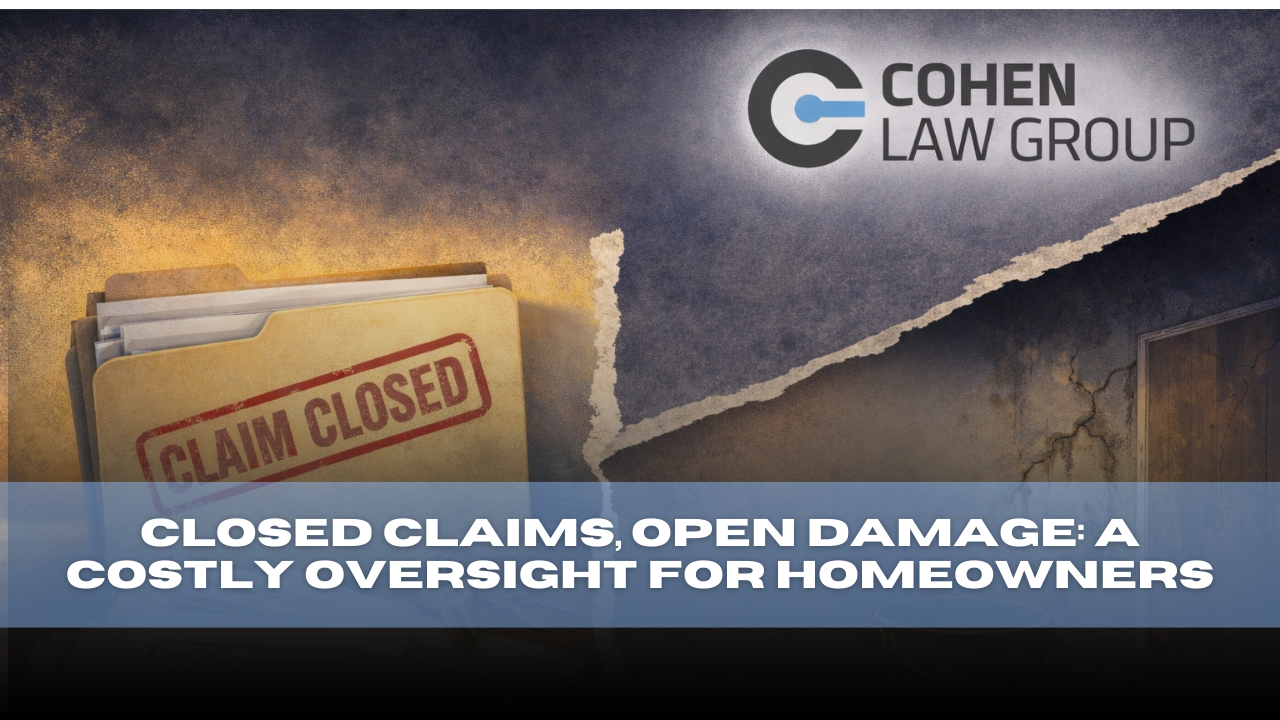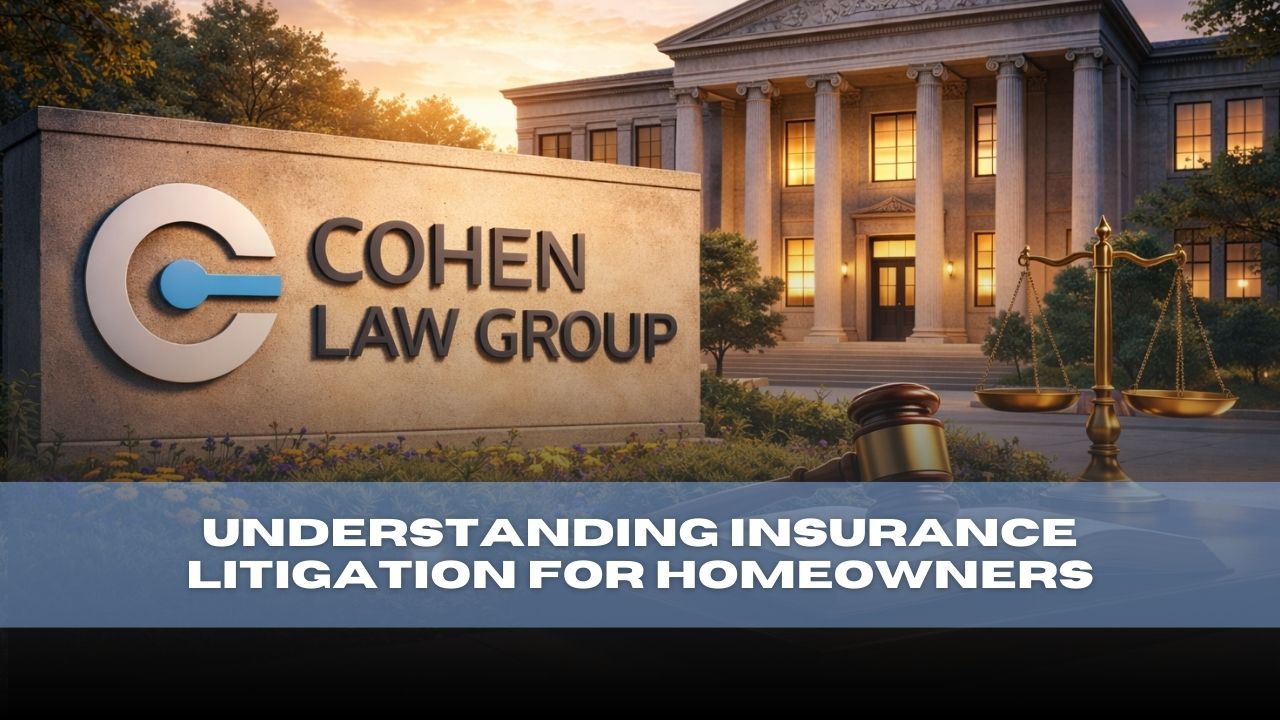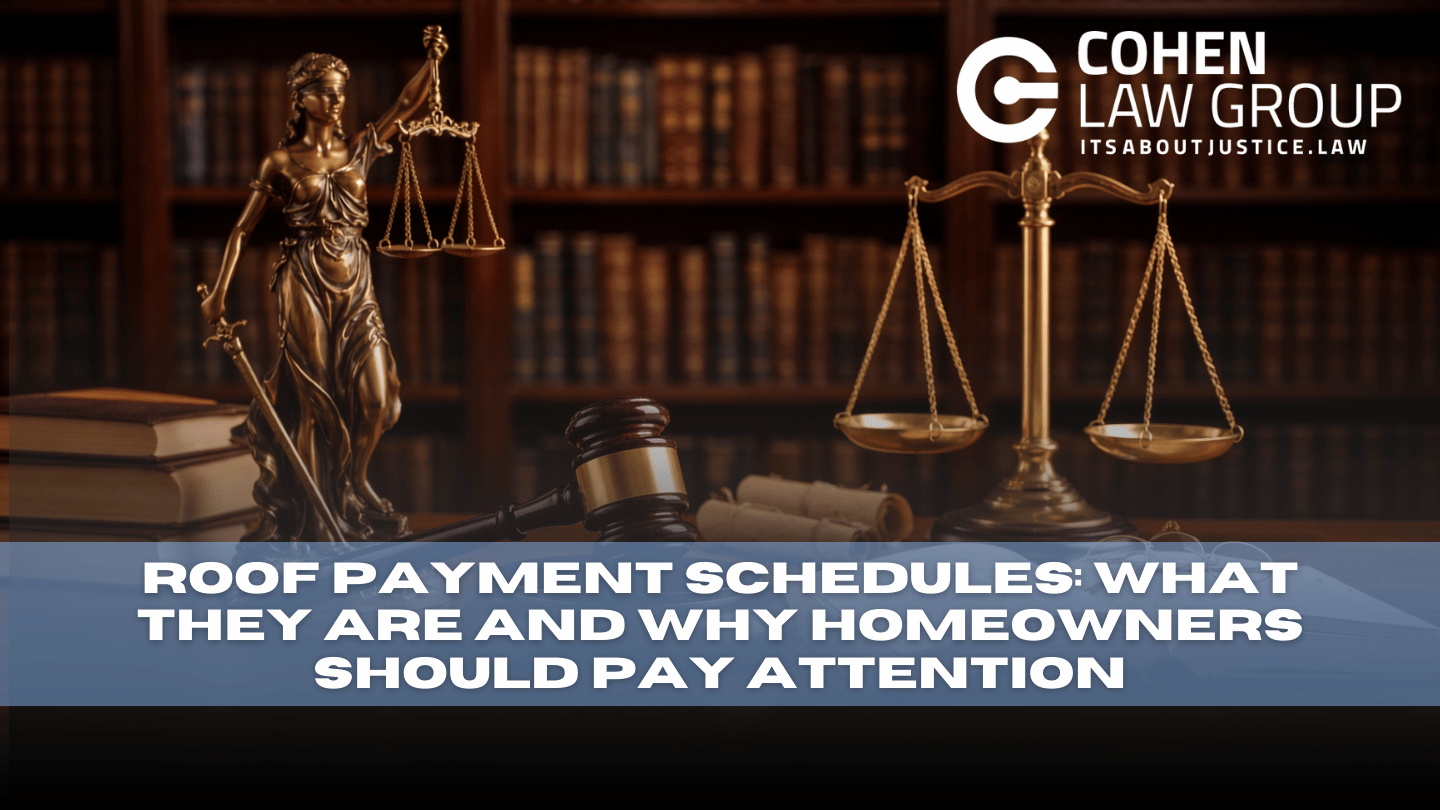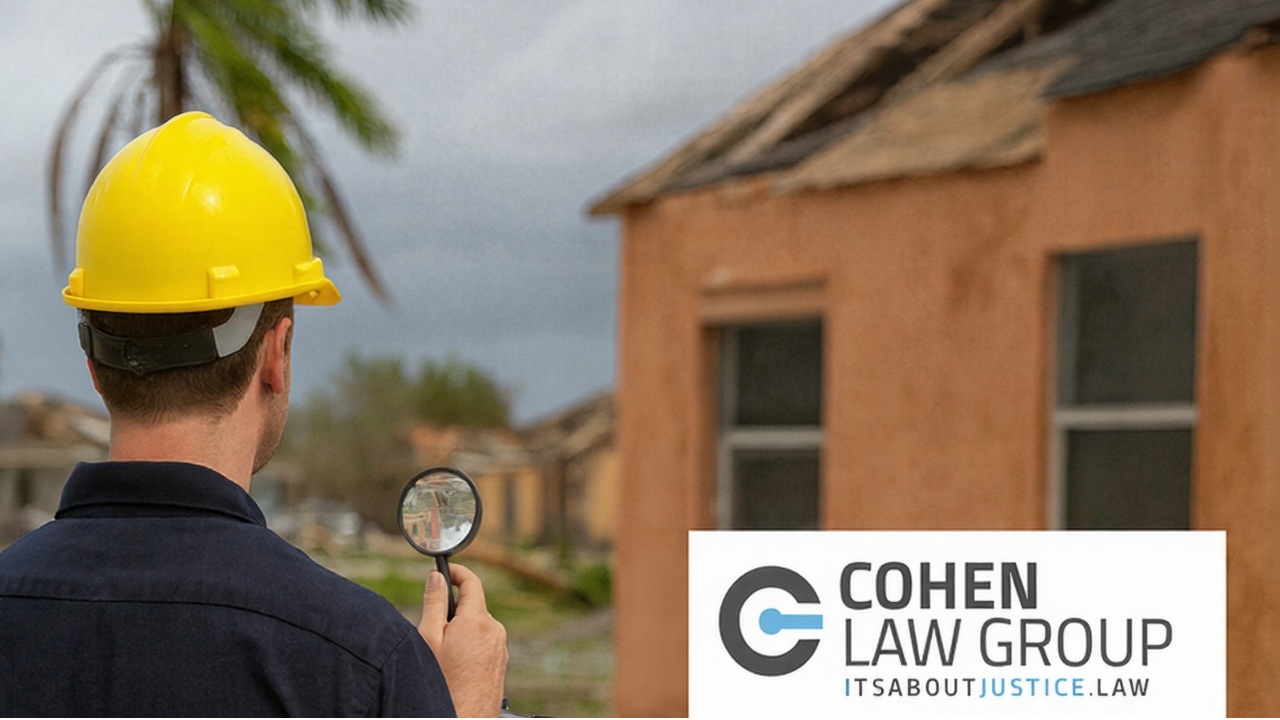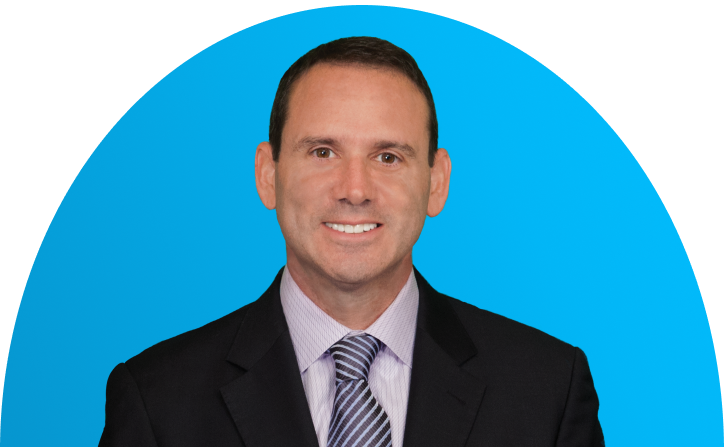How to Handle an Insurance Inspection for Sustained Hurricane or Storm Damage to your Property
Damages to your Home—Oh No! What do you do?
Step one: Call your insurance
You recently became aware of or noticed property damage to your home, and, if you’re like me, you’re probably thinking about how greatly inconvenienced you now are (I was in the middle of arranging my travel plans for my cousin Vic’s wedding, and now this?!). But, you keep on swimming and deal with the incident by taking the first step: immediately report the damages, if you haven’t already done so, to your insurance carrier. By reporting the damages, you take a crucial step in mitigating the scenario and put your carrier on notice for any repairs that your home may require.
Step two: Mitigation
Depending on the severity of the sustained damages, you may have to further mitigate the scenario than by just calling it in and making a claim. For example, if your roof has been structurally compromised due to a heavy thunderstorm (because you know, let’s face it, you live in Florida), then you will have to get a temporary tarp and place it on top of the damaged area of your roof to prevent or mitigate any interior damage, such as water leakage, to your home. Your duty as a policyholder is, first and foremost, reporting the damages and further mitigating the scenario from further damages. Luckily, you are not in this alone since your insurance carrier has legal obligations to you too!
Step three: Investigating the Claim
If you have ever been in a car accident before, then you are probably familiar with an insurance carriers’ duty to investigate a claim. It’s the same with property damage claims; your insurance carrier will investigate the claim to ensure that it is not a fraudulent one and will assess the extent of damages to your home.
Before paying you out for your claim, as one hopes, your insurance carrier will send an adjuster, professional estimator, contractor, or engineer to your home for an inspection. At this point, please come to terms with the fact that you are not a professional engineer, licensed contractor, professional estimator, or public adjuster (if you are—GREAT! –but if you are not, keep reading). You will not fully understand the extent of damages beyond those damages that are clearly apparent or visible, so leave it up to the professionals that deal with these kinds of issues every day and have a wildly keen eye for property damage. Home structures are complex and very technical. So, it is in your best interest to trust the professionals, they are the ones best equipped to tell you the full extent of damages and will help bring your home back to its pre-loss condition.
Who to Trust During the Investigation?
You should take your insurance representative’s report or assessment of your home with a grain of salt. It is in the best interest of your insurance carrier to pay you out as little as possible in order to maintain their profits high. Because of this, you should probably and preferably call and coordinate with your own contractor or professional engineer to help you figure out the full extent of your home damages. Believe it or not, some insurance carriers do not even send out licensed adjusters—Yikes!
Why Investing in a Contractor or Engineer Will Help you in the Long Haul
If you hire a contractor or engineer, they will probably do a more thorough and accurate inspection and will likely reveal more structural damages that were not apparent, but are nonetheless there. And, if you are on top of the game by hiring a contractor or engineer before the date of the insurance inspection, your contractor or engineer can help nudge the insurance adjuster in the right direction as to where to inspect for damages the day of the insurance inspection by being present. Because let’s face it, the insurance adjuster will probably not inspect your property thoroughly, and even worse, may only visibly inspect your property. Having another professional on site can truly be in your best interest.
Contractors will likely do initial inspections free of charge, so what do you have to lose—besides the rest of the roof to your home? Your insurance carrier will likely dispute the coverage of your damages or grossly underpay your claim, but with the help of a contractor or engineer, you can demonstrate that you have a viable claim and demand the amount rightfully yours under the policy.
What do to if you Failed to Hire a Professional Prior to the Insurance Inspection?
If you failed to hire a professional before the insurance inspection—do not worry! If your insurance carrier informs you that it will grossly underpay you far below your expectations or outright denies your claim—do not worry and breathe. You can still hire a professional and dispute your insurance claim. Ask for a copy of the insurance inspection report; having a copy of the report will help you determine whether the insurance’s calculations are correct within industry standards. You can dispute the damages or the amount your carrier is willing to pay—always.
Here at Cohen Law Group, we deal with these kinds of scenarios every day. So breathe, and let us—the professionals—take over. Worst case scenario is waiting, hoping, and being wishful that an insurance company will fairly pay out for damages. Call me; I am at your service and would be happy to steer you in the right direction.
COHEN LAW GROUP
DISCLAIMER: This website is for informational purposes only and does not provide legal advice. Please do not act or refrain from acting based on anything you read on this site. Using this site or communicating with Cohen Law Group through this site does not form an attorney/client relationship. This site is legal advertising. Please review the full disclaimer for more information by clicking here.

